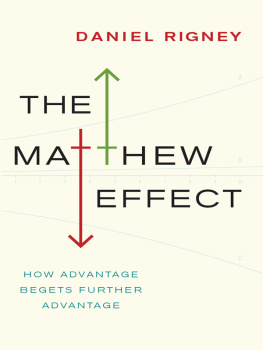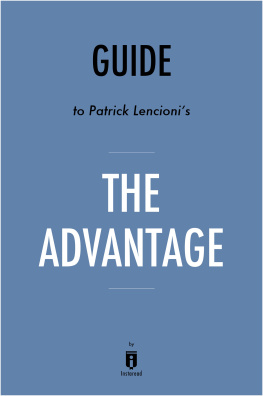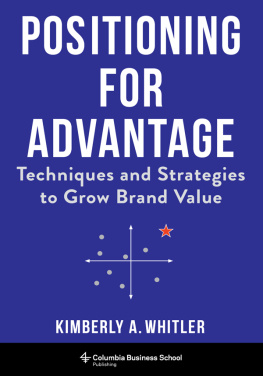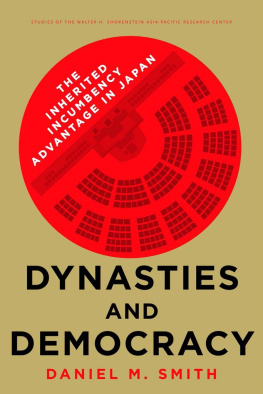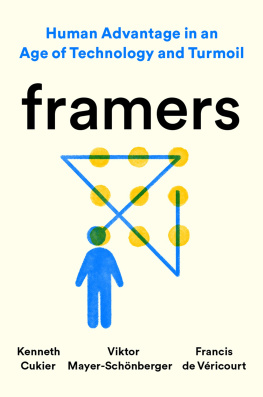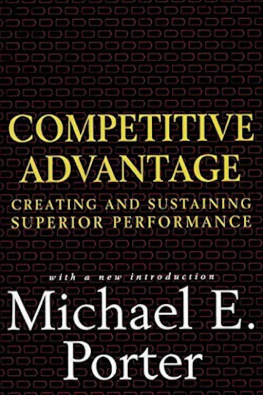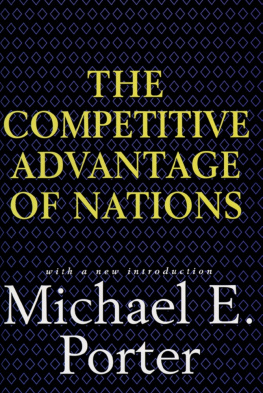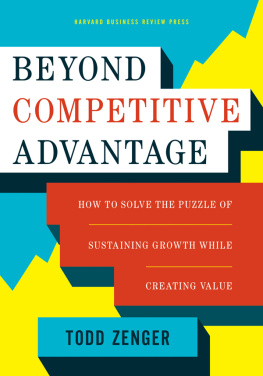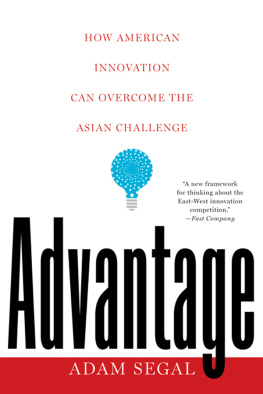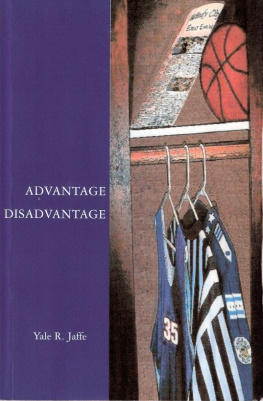A Columbia University Press E-book.
CUP would be pleased to hear about your reading experience with this e-book at .
THIS BOOK SEEKS to offer the general reader a clear and concise introduction to the Matthew effect, one of the least known but most important principles in the social sciences. Matthew effects are said to occur when social advantages lead to further advantagesor disadvantages to further disadvantagesthrough time, creating widening gaps between those who have more and those who have less. It has been more than forty years since the eminent sociologist Robert K. Merton of Columbia University coined the term to describe circumstances in which the rich get richer and the poor get poorer, as the saying goes. Matthew effects are not confined to the economic sphere, however; they have been observed across a broad spectrum of social institutions. Thus the principle is essential to understanding the social dynamics of inequality in general.
In the years since Merton coined the term, considerable research on Matthew effects has accumulated in fields ranging from sociology, economics, and political science to educational psychology and even biology. These widely scattered fragments of literature seem to point toward a fundamental principle in the social sciences, and yet they have never been brought together and presented as a coherent whole. This book aims to organize these fragments of research and present their major findings in a way that is readily accessible to social scientists, policy makers, students, and citizens at large as we continue to confront upward and downward spirals of inequality in the twenty-first century.
As a nontechnical introduction, this book does not require a strong quantitative background on the readers part. For those interested in the more technical and mathematical aspects of Matthew effects, Di-Prete and Eirich (2006) provide a useful review of the available literature and a good starting point for further research.
I gratefully acknowledge all the friends and colleagues who have helped to make this book possible. My dean, Janet Dizinno of St. Marys University, and my editor, Lauren Dockett of Columbia University Press, have supported the project consistently along the way. I have gained valuable insights from the comments of Harriet Zuckerman, Joe Feagin, Brian Slattery, Richard Machalek, Bill Schweke, Roy Robbins, and several anonymous reviewers. I am grateful to Alejandro Parada for technical support. Mi esposathe historian Alida Metcalfand our sons Matthew and Benjamin have sustained me through this project with their laughter and love. They are my life support system. Finally, I wish to pay tribute to two luminaries of the past century, Robert Merton and Gunnar Myrdal, whose pathbreaking work continues to inspire thought and scholarship. This book is dedicated to their memories.
WE ARE ALL familiar with the popular saying that the rich get richer while the poor get poorer. Though it oversimplifies reality considerably, the saying captures an important insight into the workings of the social world. In many spheres of life, we observe that initial advantage tends to beget further advantage, and disadvantage further disadvantage, among individuals and groups through time, creating widening gaps between those who have more and those who have less. The distinguished sociologist Robert K. Merton called this phenomenon the Matthew effect, from a verse in the Gospel of Matthew (13:12), which observes that for whosoever hath, to him shall be given, and he shall have more abundance: but whosoever hath not, from him shall be taken away even that he hath.
The existence of Matthew effects in social life may seem obvious. Yet the more closely we examine the phenomenon, the more complex and less obvious it becomes. In the first place, it is not universally true that the rich get richer while the poor get poorerwhether the riches in question are money, power, prestige, knowledge, or any other valued resource. Sometimes it happens that the rich and poor both get richer. Sometimes, as in deep economic recessions, the rich and poor both get poorer. And sometimes, though rarely, we find the rich getting poorer while the poor grow richer. Initial advantage does not always lead to further advantage, and initial disadvantage does not always lead to further disadvantage.
A host of vexing questions thus arise. Why and under what circumstances do Matthew effects occur, and why do they sometimes fail to occur Why do we observe Matthew effects across such a broad spectrum of social settings, from economic systems to scientific communities and from schools to political institutions? Insofar as such effects produce growing inequalities within social systems, what are their moral and political implications Matthew effects sometimes may produce socially beneficial results, but surely they may also produce manifest injustices, breeding resentment and even reactive violence among those who are left behind. Do we really wish to create a future in which the chasms that exist between the advantaged and the disadvantaged continually widen?
Finally, are Matthew effects and the widening inequalities they create beyond human control? Are they a law of nature, like gravity, which we simply must accept as inevitable? Or are they social constructs, created by human beings and thus susceptible to human choice and change? Can we control Matthew effects and their consequences, or must they inevitably control us?
Those who study inequality, or what sociologists call social stratification, have invoked a multitude of factors to explain how inequalities in the distribution of resources originate among individuals and groups. Some have argued that the rise of inequalities is largely attributable to differences in motivation, talent, and personal initiative. Others find the roots of inequality in brute force and the exploitation of the powerless by the powerful.
The study of Matthew effects, however, is concerned less with the sources of inequality than with how these inequalities persist and grow through time. It explores the mechanisms or processes through which inequalities, once they come into existence, become self-perpetuating and self-amplifying in the absence of intervention, widening the gap between those who have more and those who have less. No theory of stratification is complete without attention to such processes.
The study of Matthew effects can have disturbing implications, especially for those of us who have enjoyed more initial advantages than most. We want to believe that the advantages we were born with, and whatever further advantages we have managed to accumulate in the course of our lives, are earned and well deserved. Meanwhile, we are surrounded on all sides by extreme social inequalities, not only in our own nation, but also within and among the nations of the world. If we are honest, we must acknowledge that some of us benefit personally from systems of inequality from which others suffer. Some part of us would prefer not to think about these issues; we may prefer to suppress these questions altogether, fearing that their answers will not profit us. Yet there is another part of ussome call it the social consciencethat activates a concern for the well-being of others and for the common good. That part of us, which Abraham Lincoln called the better angels of our nature, takes a special interest in how Matthew effects work, and will seek to know what, if anything, we can do to counteract their more destructive consequences.

